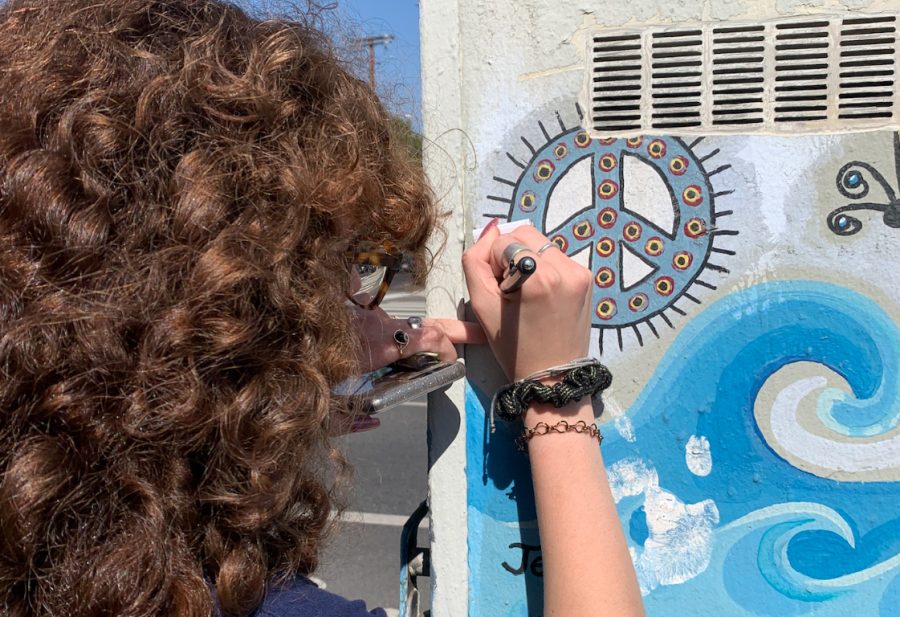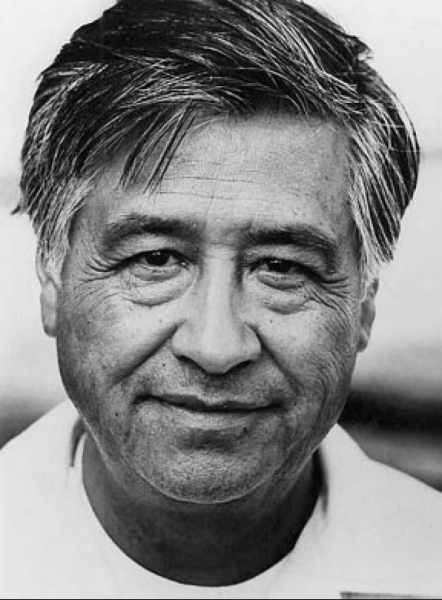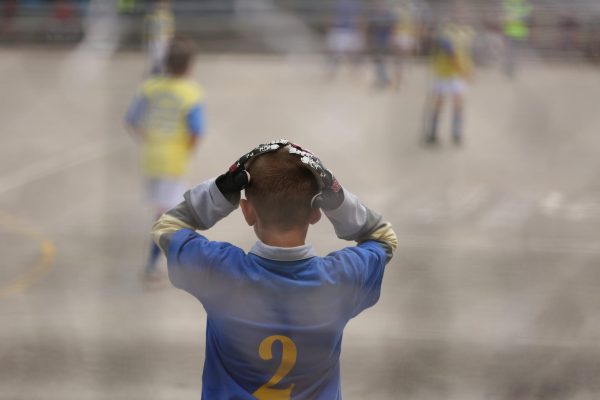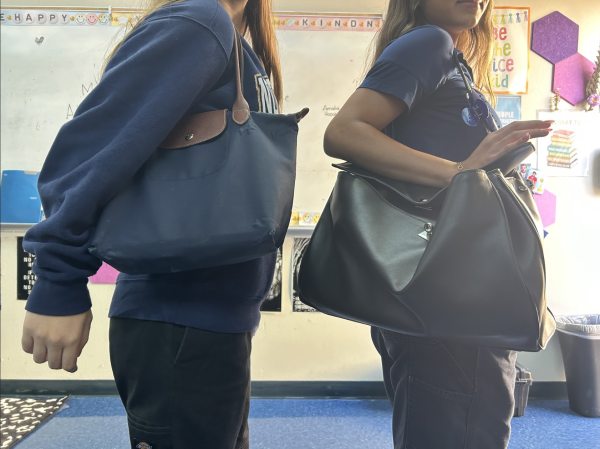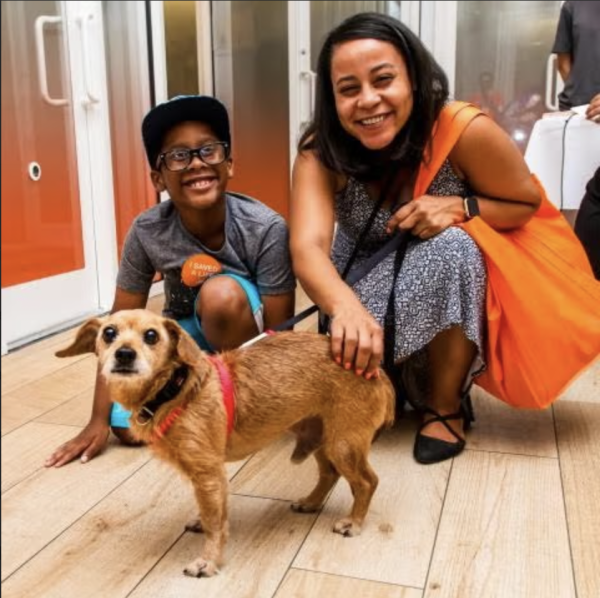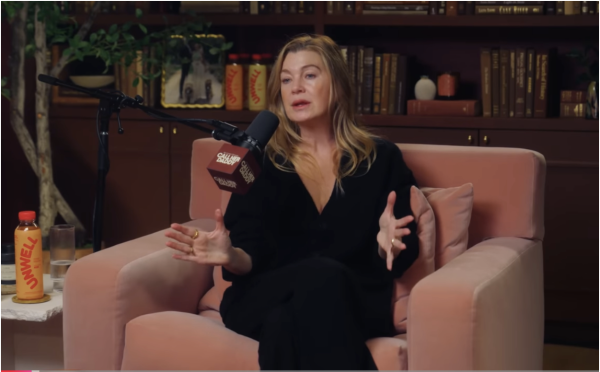The Search for Safe Streets
The unique connection between grief and geocaching
Ruby Birch ‘23 signs her name on the gecache’s paper log. This find is considered a “micro,” meaning it’s smaller than most containers and doesn’t contain any trinkets.
Geocaching is the world’s largest treasure hunt. Equipped with GPS coordinates and a can-do attitude, people of all ages are constantly on the search for these hidden stashes, which hold a logbook to sign and trinkets to trade. There are over a hundred thousand just in the state of California, and quests to find the capsules can lead these modern explorers to pretty amazing places; beautiful lookouts, historical landmarks, and, maybe most amazingly, just across the street from Notre Dame High School.
The small container is on the corner of Woodman and Addison, tucked out of sight under a colorful traffic control box. More than 150 people have marked this find on the Geocaching app since it was placed there over a decade ago.
Like most log comment sections, people are expressing gratitude towards the owner of the cache and sharing anecdotes with other members. However, unlike other caches, there are deeper emotions represented there too—the most prevalent among them are respect, empathy, and grief.
The cache was established in memory of Conor Lynch, who attended Notre Dame from 2008 to 2010. A member of the cross country team, Conor was 16 when a distracted driver fatally struck him on an afterschool run. His death greatly shook his family, Notre Dame, and the surrounding community. Those who never met Conor felt an incredible affinity for his story, and friends and strangers alike placed flowers, stuffed animals, and candles on the bench near where the accident occured.
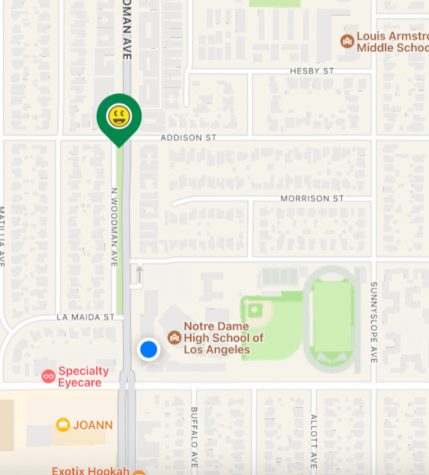
One such community member who was moved by the tragedy was an individual named Chuck, better known online as CacheKidz. Neither he nor his wife ever knew Conor, but as the father of two children growing up in The Valley, the loss was particularly stirring.
“I didn’t even know anybody who went to Notre Dame, but it was so heartbreaking that it had to happen to somebody so young. I’m grateful that my small act has brought some awareness, at least to geocachers. It’s important that people stay alert when they’re driving,” said Chuck.
He hopes that the cache will continue to honor the late student’s memory and spread awareness about the importance of road safety.
Jeri Dye Lynch, Conor’s mother, and the founder of the Conor Lynch Foundation discovered the geocache many years ago, and the unexpected love she encountered has stuck with her to this day.
“I remember when we were painting the electric box and I found the little magnet box underneath. When I opened it and read it, I was in tears at all the messages that were in there…It always warms my heart to know that people still want to reach out to us,” said Lynch.
Many streets in the United States, especially in Los Angeles, are built to prioritize the efficiency of motor vehicles over the safety of pedestrians and bikers. With cars moving by at high speeds, sidewalks and bike lanes seeming to end arbitrarily, and cellphone use behind the wheel increasing exponentially, simply going for a stroll can quickly become a hostile and overwhelming experience.
This is distinctly concerning because while not everyone has the financial means or physical ability to drive, almost everybody walks—even if it’s just to and from their parking spot.
The public deserves roads that will keep them protected both inside and outside of a car, end of argument.
And for runners, geocachers, and other people who find joy and excitement in the outdoors, the struggle for security is even more crucial. A hunt for a magnetic mint container or a quick jog to the local park shouldn’t mean an encounter with a life or death experience—but all too often, it does.
As Mrs. Lynch kindly said, “I share Conor’s story [because] I can’t bring [him] back, but we can help others from dying too early. We can save them from preventable deaths.”
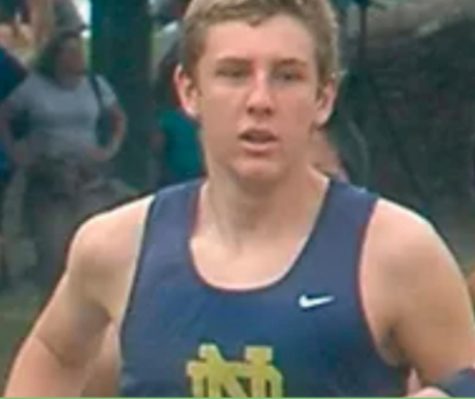
So next time you’re behind the wheel, take note of what distracts you, and make the choice to turn away. Do you find yourself reaching for your phone? Flicking endlessly through radio stations? Chatting with friends and letting your eyes drift from the road?
The search for safe streets is certainly complex and ongoing—but it begins with conscious decisions from each of us.

